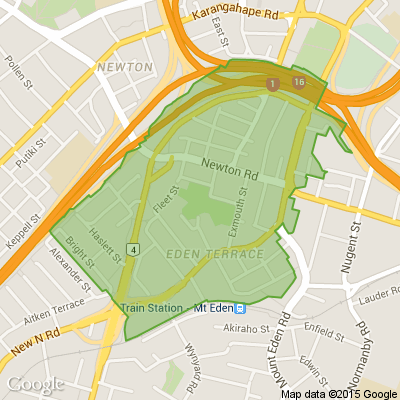
Know what’s happening
Access the private noticeboard for verified neighbours near you. Keep informed about any suspicious activity, send urgent updates to your neighbours when required and discuss emergency planning.
Get to know your neighbours
Browse the directory and start getting to know your neighbours. Don’t want to post to the whole neighbourhood? Send a private message.
Buy, sell and give away
Want to declutter your garage? Buy some used household items? Give away some garden stuff? Become a verified neighbour to browse and post items for sale. Trading is simple when everyone lives nearby.


It is almost the weekend!
List your pre-loved gems in Neighbourly Market.

Thank you for using Neighbourly
You may receive an email confirmation for any offer you selected. The associated companies will contact you directly to activate your requests.
shop manager from Red Cross Shop Dominion Road
To all our Customers… we are open today and every day from 9am to 5pm!
We’ve got amazing new stock, lots of Summer Holiday goodies for all ages.
Looking forward to seeing you soon!
184 Dominion Road 📍
… View moreTo all our Customers… we are open today and every day from 9am to 5pm!
We’ve got amazing new stock, lots of Summer Holiday goodies for all ages.
Looking forward to seeing you soon!
184 Dominion Road 📍
09 630 5930
Open 7 days a week 🗓️
Mon-Sun: 9am-5pm
Free parking 🅿️
Harry from Grafton
Assorted facial and protein masks which can be shipped for a little extra.
Price: $350

The Riddler from The Neighbourly Riddler
🧩 Got a riddle that can stump your Neighbourly community? Share your brain teasers with us and watch your neighbours scratch their heads 😕🤔❓
Send us your tricky puzzles!

Harry from Grafton
Mini DP to slim VGA and two Samsung USB connectors which can be shipped for a little extra.
Price: $25

Janai from Sandringham
Selling this little ones bead maze toy as no longer required.
As per photos it’s in great condition with plenty of life left in it.
From smoke and pet free home.
Pick up is in Sandringham.
Price: $15
Janai from Sandringham
Selling these brand new bath time learning boat toys as no longer required.
Brand new and never used.
From smoke and pet free home.
Pick up is in Sandringham.
Price: $10
Marketing Manager from Beds4U - Newmarket
Hey neighbours,
Waking up with sore shoulders and stiff mornings? Here’s the plot twist - it might actually be your mattress (and pillow) letting you down.
It’s the perfect time to upgrade. New Year, New Bed! Our Boxing Day Sale is still on, so why not treat yourself to a mattress that … View moreHey neighbours,
Waking up with sore shoulders and stiff mornings? Here’s the plot twist - it might actually be your mattress (and pillow) letting you down.
It’s the perfect time to upgrade. New Year, New Bed! Our Boxing Day Sale is still on, so why not treat yourself to a mattress that actually supports you and helps you wake up refreshed? Side sleeper? Back sleeper? Tossing and turning? We’ve got tips and solutions for every kind of snoozer.
Don’t settle for mornings that hurt, your bed should work with you, not against you. Curious about how your mattress could be affecting your shoulders? Check out our blog: beds4u.co.nz...
Find your nearest Beds4U store here: beds4u.co.nz/store-locator
Browse all Boxing Day deals: beds4u.co.nz/boxing-day
Here’s to starting 2026 waking up refreshed, because mornings should feel amazing!

The Team from New Zealand Police
Police are appealing to the public for any footage they may have of the mass disorder that occurred on Karangahape Road in Auckland in the early hours of Sunday 28 December.
Emergency services were called to the disorder around 3.41am where it is estimated around over 50 people were present.
A … View morePolice are appealing to the public for any footage they may have of the mass disorder that occurred on Karangahape Road in Auckland in the early hours of Sunday 28 December.
Emergency services were called to the disorder around 3.41am where it is estimated around over 50 people were present.
A Police investigation is underway after there were three serious assaults on and around Karangahape Road during the mass disorder.
A portal has been set up to allow the public to upload any footage they have of the disorder and the serious assaults.
The portal is https://dahr.nc3.govt.nz/
Police have arrested one person but are asking for help to identify and locate others involved.
• Around 4:15am there was a serious assault outside the Crown Bar on Queen Street.
A 33-year-old man received serious injuries and was hospitalised.
The offender is still unknown, and the Police file number is 251228/4647.
• Around 4:30am there was another serious assault on a Cobden Steet just off Karangahape Road.
A 27-year-old man received serious injuries and was hospitalised.
The offender is still unknown, and the Police file number is 251228/4462.
• Around 5am there was third serious assault at the Mobil Service Station on the corner or Karangahape Road and Ponsonby Road.
A 46-year-old man received serious injuries and was hospitalised.
A 21-year-old man has been charged with wounding with intent to cause grievous bodily harm.
He has been bailed to appear in court again on 16 January 2026.
The Police file number is 251228/4774.
Police would like to speak to anyone who has witnessed or filmed the assaults.
Witnesses can call Police directly on 105.
Please quote one of the above file numbers.

Harry from Grafton
Japanese hakama pants size XL and karate pants size M which can be shipped for a little extra.
Price: $120

Harry from Grafton
Assorted baby equipment which can be shipped for a little extra.
Price: $50

Estelle from Mount Eden
To the lovely man who kindly let me use his Woolworths rewards card - I was buying brandy snaps etc can you please message me, thank you very much.
You made a comment you'll be asked why you are buying brandy snaps.
Estelle
 Loading…
Loading…
Are you sure? Deleting this message permanently removes it from the Neighbourly website.
 Loading…
Loading…
© Neighbourly 2026
